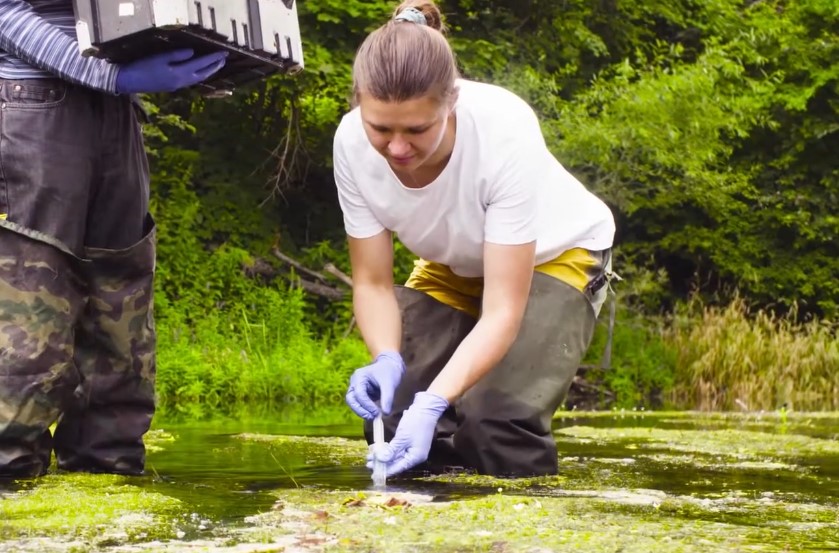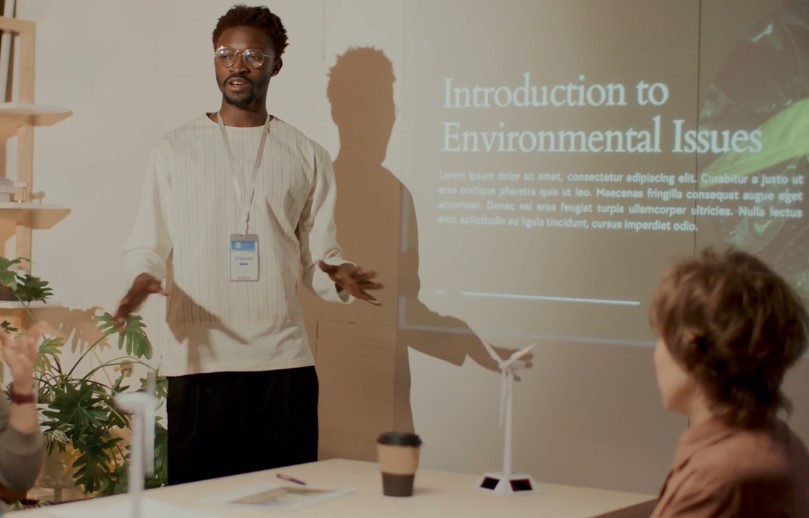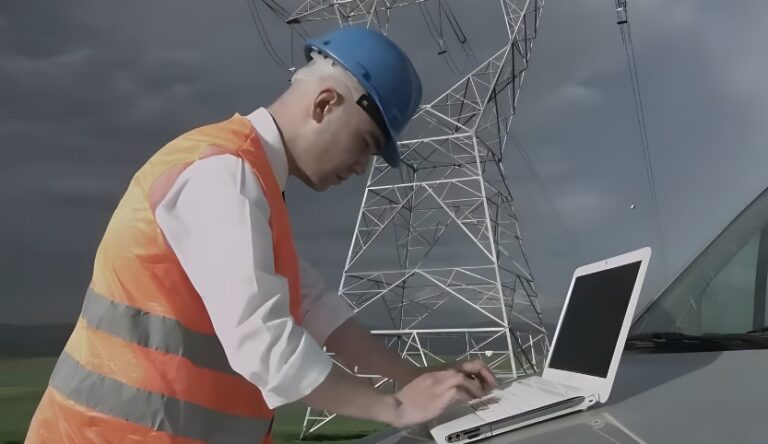The planet’s heating up, literally and figuratively. Across the globe, extreme weather, disappearing coastlines, wildfire-prone summers, and shifting agricultural zones are no longer predictions.
They’re happening now. And while the world scrambles to adapt, a quieter revolution is already reshaping the job market: climate-focused careers. Some are brand-new, others are old roles with a green twist, but all of them share one thing – they’re built for the world we’re heading into.
Let’s take a closer look at where the opportunities lie, which skills are gaining traction, and how to actually build a career that won’t get swept away by the next heatwave or policy shift.
Key Highlights
- Green jobs are growing faster than most traditional sectors, especially in energy, science, and planning.
- Only 13% of workers currently have green skills, leaving a wide-open door for upskilling.
- Climate-related careers span everything from engineering and law to art, healthcare, and construction.
- Educational programs, short courses, and hands-on experience are critical pathways into the field.
- Careers like wind turbine tech, solar installer, and environmental analyst offer both stability and purpose.
Why Climate Change Is Reshaping the Job Market
We’re past the point of arguing whether climate change is real. Economies are shifting to meet its impact head-on. Governments are pushing for clean energy.
Companies are being held accountable by consumers. And people – especially younger generations – want jobs that do more than just pay the bills. They want meaning, impact, and security.
The World Economic Forum’s Future of Jobs Report 2025 spells it out clearly: climate adaptation and sustainability are among the most transformative forces reshaping the labor market through 2030.
Roles related to environmental sustainability are growing faster than most traditional sectors. Not only that, but people are actually willing to leave companies that aren’t prioritizing sustainability.
One stat worth noting: hiring for green roles has been outpacing overall hiring rates globally for years now. Green skills are up 40% since 2015, yet only 13% of workers actually have them. That’s a massive opportunity just sitting there.
Green Jobs

Green jobs aren’t some vague idea. They have job titles, salary ranges, growth data, and real hiring momentum behind them. Here’s where the action is.
Popular Climate Careers Already in High Demand
| Occupation | Avg Salary (USD) | Growth Outlook |
| Environmental Scientist | $63,772 | 8% by 2030 |
| Renewable Energy Engineer |
Varies (Often $80K–$120K) | Strong growth |
| Environmental Lawyer | $148,910 | 9% by 2030 |
| Ecologist | $50K–$90K | Moderate growth |
| Wildlife Conservationist | $40K–$70K | Moderate growth |
Environmental Scientists blend biology, chemistry, and data to assess threats and propose solutions. Whether it’s water quality or hazardous waste, they’re often the first responders in environmental crises.
Renewable Energy Engineers are driving the shift to solar, wind, and other alternatives to fossil fuels. If you’re technically inclined and want to be part of the energy solution, this path is worth exploring.
Environmental Lawyers are holding polluters accountable, shaping policy, and working inside corporations to keep them compliant.
It’s one of the higher-paying paths, but it does require law school and a strong grasp of regulatory frameworks.
Ecologists and Conservationists are digging into how changing ecosystems affect species – and what to do about it. If you’re passionate about wildlife and fieldwork, this is your arena.
Rising Careers You Might Not Have Considered (Yet)

Some roles are gaining ground quickly as climate risks increase. These careers are well worth a look – especially for those who want a foot in the door without necessarily spending years in grad school.
| Job Title | Avg Salary (USD) | Growth Outlook | Recommended Degree |
| Environmental Science &
Protection Technician |
$46,850 | 11% | BS in Environmental Health & Safety |
| Urban Planner | $75,950 | 7% | MS in Urban Ecology |
| Environmental Engineer | $92,120 | 4% | BS in Environmental Science |
| Environmental Data Analyst | $73,230 | 8% | AAS in Data Analytics |
| Environmental Emergency
Planner |
$73,230 | 8% | BS in Environmental Science |
These careers intersect with city planning, public safety, and data science. For instance, Urban Planners are rethinking how cities can withstand sea-level rise or redirect stormwater. Emergency Planners are mapping out responses to wildfires, heatwaves, and floods that are no longer rare events.
And the Data Analysts? They’re parsing enormous sets of climate data to spot trends, risks, and actionable insights. Climate change is chaotic, but good data can give us a fighting chance.
Wind and Solar Jobs
If you’re looking for straight-up job growth, it’s hard to beat renewable energy and solar jobs. According to Yale Climate Connections, the following two roles are among the fastest-growing in the U.S., period – not just in green jobs.
| Occupation | Jobs in
2019 |
Expected Growth by
2029 |
| Wind Turbine Tech | 7,000 | 58.5% |
| Solar PV Installer | 12,000 | 46.8% |
These aren’t desk jobs. You’re out in the field, often working with your hands, sometimes at heights, and always helping power a cleaner grid. There’s also room to move up – with experience, technicians can shift into supervisory or design roles.
If you’ve got a technical mindset and like working outside, both career paths offer stability and decent pay, even with just an associate degree or technical training.
Healthcare, Art, and Beyond

You don’t need to be a scientist to work in climate. In fact, many roles across traditional sectors are being redefined through a climate lens.
Healthcare
Doctors, nurses, and public health professionals are dealing with heat-related illnesses, respiratory problems from air pollution, and the mental health impacts of climate disasters. Climate resilience is becoming part of the medical conversation, especially in vulnerable communities.
Arts and Culture
Artists, musicians, and filmmakers are telling the stories that numbers can’t. Climate-themed performances, documentaries, and visual art are shaping public opinion and even influencing policy. It’s not just about awareness – it’s about impact.
Urban Planning and Social Science
Sociologists and community organizers are making sure adaptation plans are fair and inclusive.
City planners are pushing for walkable neighborhoods, better public transit, and green infrastructure to reduce flooding. If you’re passionate about social justice, climate work offers meaningful ways to contribute.
Construction and Engineering
Construction is another field in transformation. There’s growing demand for green builders, climate-resilient architects, and civil engineers who can design levees, fire-resistant buildings, and efficient transportation systems.
Even office workers have a role – by implementing workplace sustainability initiatives, influencing procurement decisions, and pushing for eco-friendly policies at work.
Where Education Fits In
View this post on Instagram
If you’re wondering how to get from where you are now to one of these roles, the good news is there’s no single path.
But here are a few options from Unity Environmental University that are tightly focused on real-world climate careers:
Bachelor-Level Programs
- BS in Sustainable Business Management: Pairs business with environmental focus. Good for those aiming for supply chain, agriculture, or consulting roles.
- BS in Environmental Science and Climate Change: A well-rounded program that opens doors to technician roles, lab work, and entry-level climate policy positions.
Graduate-Level Programs
- Sustainable MBA: For mid-career professionals ready to lead in green finance, operations, or strategy.
- Master’s in Environmental Studies and Sustainability: Ideal for careers in climate policy, NGO leadership, or consulting.
Many of these programs include hands-on experience, internships, or capstone projects tied directly to climate work. If you’re pivoting from another field, you might also explore certificate programs or online learning hubs like LinkedIn’s Sustainability Resource Hub.
Who’s Leading the Way?
Some countries are better positioned than others when it comes to green transitions – but the gap is narrowing.
- Germany is integrating green skills deeply into its manufacturing sector.
- India and the U.S. are leading in greening oil, gas, and mining operations.
- In Europe, 26% of adults say a company’s sustainability efforts influence their employment decisions.
That societal shift matters. When culture, policy, and hiring trends move together, the result is a more stable job landscape – and more chances to build careers that last.
A Few Practical Steps to Get Started

If you’re interested in climate-related careers, here’s where to start without quitting your job tomorrow:
1. Audit Your Current Skills
You may already have valuable skills – like data analysis, project management, communication, or mechanical repair – that apply to green careers.
2. Explore Short Courses
LinkedIn Learning, Coursera, and edX all offer free or low-cost courses on sustainability, climate policy, or environmental data.
3. Look at Industry Job Boards
Platforms like GreenJobs, Climatebase, and even traditional sites like Indeed now have climate-specific tags or categories.
4. Volunteer or Freelance
NGOs, local community groups, or even local governments often need help on short-term sustainability projects. It’s a good way to gain experience and make connections.
Climate Careers Aren’t Optional Anymore
We’re not talking about niche careers anymore. As the world heats up, entire sectors are being reimagined around sustainability, climate resilience, and environmental responsibility. From wind techs to lawyers, from urban planners to healthcare workers, the need is real and rising fast.
The jobs aren’t just necessary – they’re growing, they’re meaningful, and they’re here to stay.
Whether you’re starting from scratch, switching careers, or looking to future-proof the one you have, now’s the time to get in the game. The planet’s future depends on it. So does your job security.

